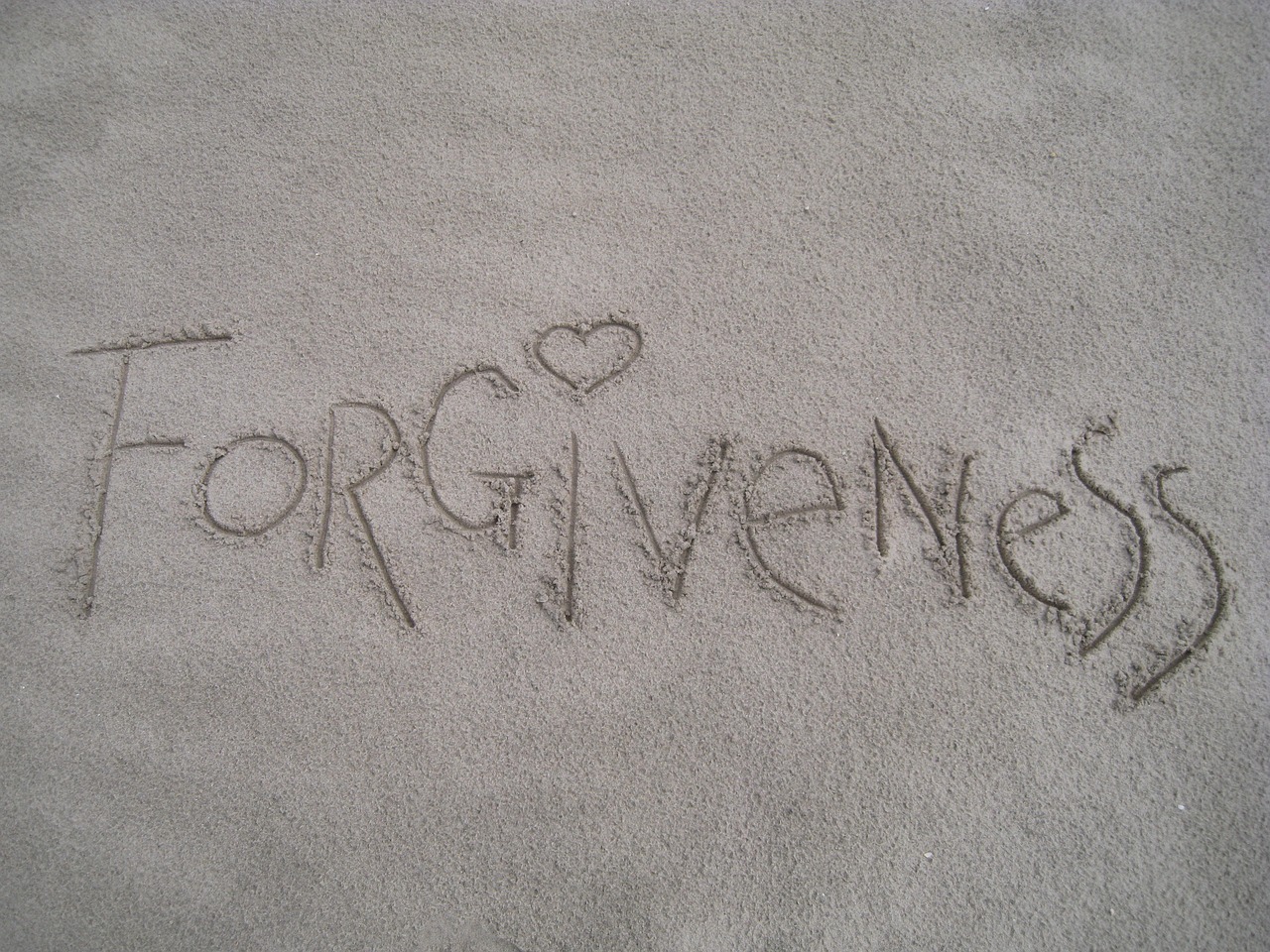Forgiveness After Covid: Steps for Forgiving Those Involved
Forgiveness After Covid: Steps for Forgiving Those Involved

by Connie Domino, BSN, MPH, RN
Note to the reader: I would suggest you read the forgiveness articles in the last two HEALNC blog. They explain guidelines for forgiveness and ten people and/or places you should forgive now. This article is the third in the forgiveness series that teaches you “how to” forgive.
I’ll never forget the urgency that came across a text I received in 2020. It was a young nurse that I knew, and she sounded frantic, even in a text. She remembered me from years earlier when I taught at the nursing school she attended. I was surprised to hear from her as she was smart, but not always the most studious, and there were days I wondered if she would make it through the program. However, she did make it and here she was taking a very brave stance on the frontlines of a very confusing, very tough time during a pandemic we were all struggling to understand. She said, “Please help me understand this, I work at a skilled nursing facility (nursing home) and half my patients have died. They are asking me to go part-time as there are not enough residents left to require my full-time work. I am very upset.”
I called her to better understand. This is news I had never heard before. It sounded strange and in normal times health officials would have investigated right away. I asked her if she had any idea what had caused this many resident deaths at once. Each flu season many elderly die in our country, but not half the residents in a skilled nursing facility, not even close to that. Hospitals generally try and keep flu patients from being admitted if they can be treated at home, because of the risk imposed to surgery patients and others with compromised immune systems. However, the year 2020 was different, because a flu pandemic with a novel strain we had not seen before was especially hitting hard in the U.S. and other Western nations. It was a very difficult and confusing time.
My former student continued by explaining that patients with Covid had been discharged from the hospital to the skilled nursing facility where she worked as a nurse infecting the residents who lived there. I had heard about this happening in another state but was surprised to hear of it happening in my state. I asked whether her administration or the companies who owned the home could step in and ask that these infected clients be kept in the hospital longer. I thought perhaps special accommodations could be made in hospital units better equipped to care for these clients, like negative pressure rooms for airborne precautions, filtering the infected air outside of the hospital and specialized UV lights to sterilize a room when an infected patient was discharged. She said her skilled nursing facility was not allowed to turn these Covid infected patients away.
I will avoid making assumptions as it was a very difficult time and the medical community had never experienced anything remotely like this in our lifetimes, not on this scale. It took time to establish facilities that were especially dedicated to caring for Covid patients. However, I wondered if there could have been other arrangements made at the time because skilled nursing facilities are generally not equipped with special accommodations like those mentioned above to care for residents with a deadly airborne communicable disease especially being admitted from the outside to their facilities.
I realized the immediate need in front of me was to help this young nurse who was grieving the loss of half her residents and the loss of half her wages she needed to support herself and her family. I told her about forgiveness and described how this simple technique had helped a lot of people I had worked with in healing as well as meeting other life goals. Her immediate goal was to obtain a full-time job with benefits, making more than enough money to meet her family needs. However, there was not a specific person that she knew to forgive as these decisions were made at a federal and state level.
Below is information I shared with this nurse and with all my coaching clients regarding how to forgive. You can use these guidelines to forgive individuals or groups. Sometimes decisions are made, and a person doesn’t know an individual to forgive because a decision has been made by a government, federal or state agency, organizations, corporations or by a group of religious leaders. In cases like this, I suggest taking the following simple steps on how to forgive.
Simple Steps You Can Take to Forgive
First, settle yourself in a comfortable chair or place where you will not be disturbed while you complete this forgiveness technique. You do not need to contact anyone. This can be done in the privacy and comfort of your own home. Settle any pets or children you may have and turn off any electronic equipment that may disturb you. Then, visualize in your mind’s eye a group of people sitting at a conference table or in nature, whatever works for you. This group will represent the people you are forgiving. If you have trouble visualizing in your mind’s eye, find a picture online of a group that represents them. Once you can see them in your mind’s eye, visualize them as they would look if they had made the most wise, healthy and appropriate decisions treating people fairly, compassionately, ethically, and morally. If you use a picture, use a picture of people that best shows these positive attributes and virtues listed.
Then say a simple forgiveness statement to them. Christians have asked if they can say they forgive people through the Grace of God and Jesus. I tell them that is fine if they also sincerely forgive the people themselves. You may wish to say something like this below directed at the people you wish to forgive.
(Through the grace of Jesus/God), I forgive you completely and freely, I release you and let you go. So far as I’m concerned, the incident(s) that happened between us is finished forever, I wish the best for you. I wish for you your highest good. I am free and you are free and all again is well between us. Peace be with you.
Now, visualize the people you are forgiving accepting your forgiveness.
Once this young nurse had forgiven the people who made the decision that led to half the residents in her nursing home dying, and her hours and pay being cut in half, she applied for and received a new nursing job that better met her needs and goals.
Many people have used these exact words to forgive and experienced positive results. Once the lack of forgiveness was no longer burdening them, they found their prayers were answered and they met life goals more quickly and easier. I don’t suggest changing the words, but if you do change them, avoid words to justify your anger and/or disappointment. For example, avoid a sentence such as, “I forgive you for not being the leaders I wanted you to be.” Avoid negative words like “not” and “want.”
You can use this same statement to forgive any person living or deceased or any group. How do you know you need to forgive? Any person or group that makes you feel hurt and/or resentment when you think of them needs your forgiveness. Make a list of the people from the sandbox through today that you need to forgive. You can also forgive yourself. Then, set a time each day to work through your list. Say the forgiveness statement written above for each person separately, unless there is a specific group, then say the forgiveness statement for each group.
Follow the same guidelines as above, settling in a comfortable, undisturbed place and bring each person to your mind’s eye looking as if they treated you like they should have. If you cannot visualize them, visualize a balloon representing them. Visualize them accepting your forgiveness. Forgiveness does not mean how they treated you was justified. It is not a weak strategy you use for other people. It frees you from the burden that lack of forgiveness can become blocking your life desires. It’s the best, most positive action you can take for yourself and others. Forgiveness is freeing, can bring mental, emotional and physical healing and can help you meet your life’s dreams and goals.
By: Connie Domino, BSN, MPH, RN
ConnieDomino.com
THIS WEBSITE IS NOT INTENDED FOR PROVIDING MEDICAL ADVICE
